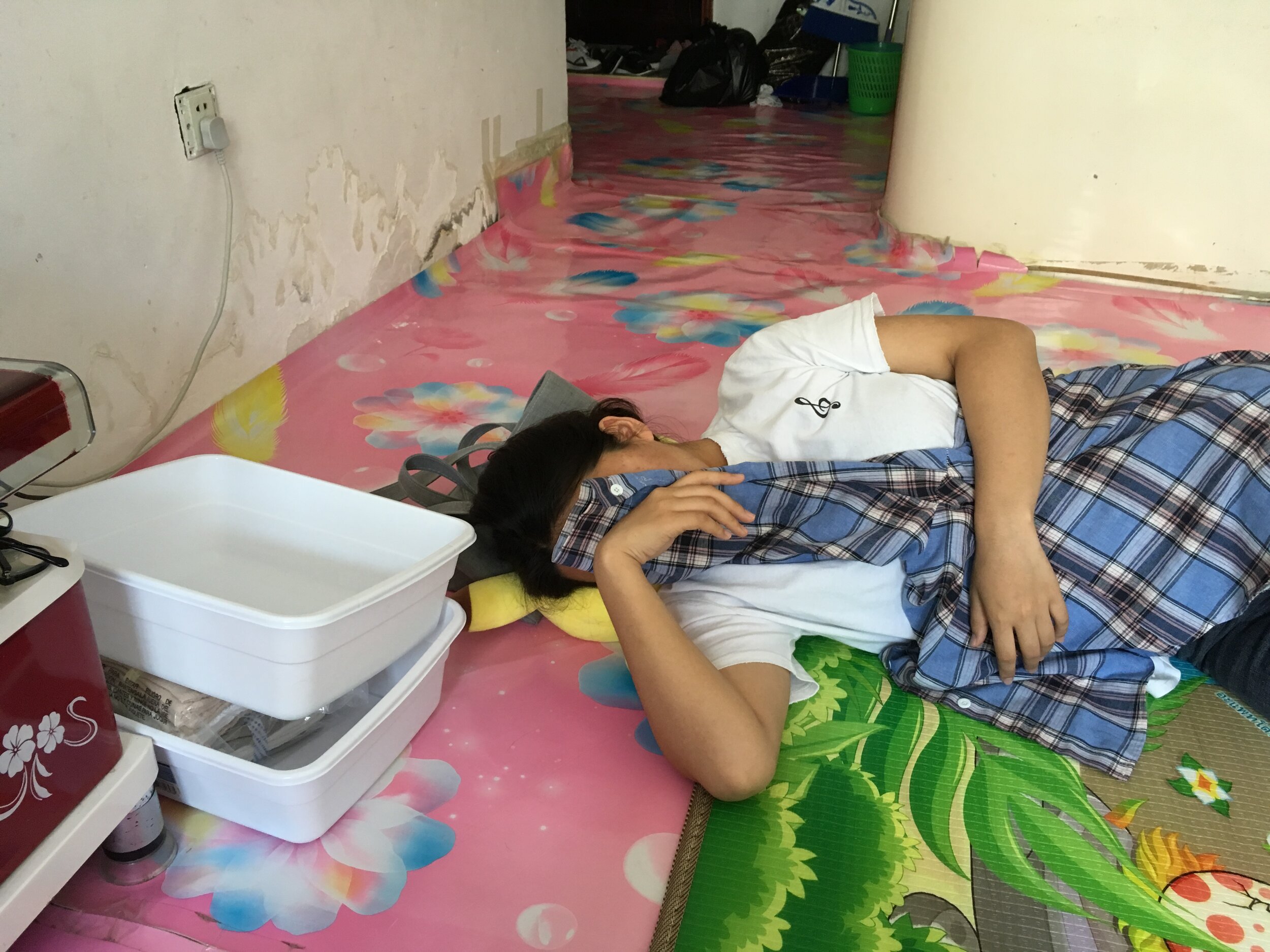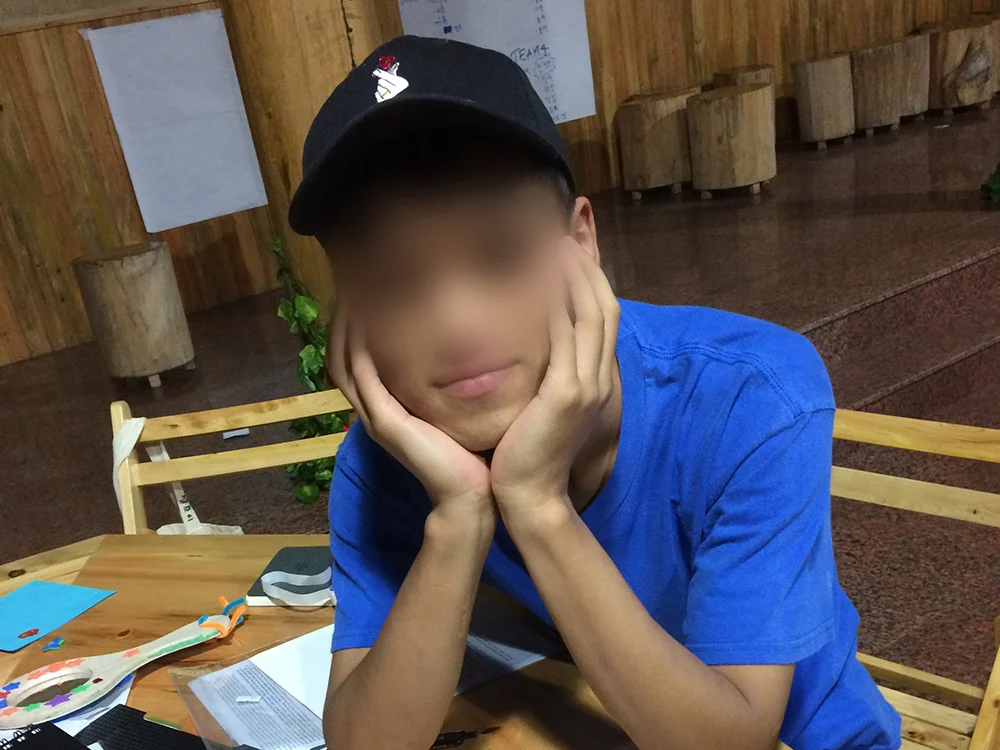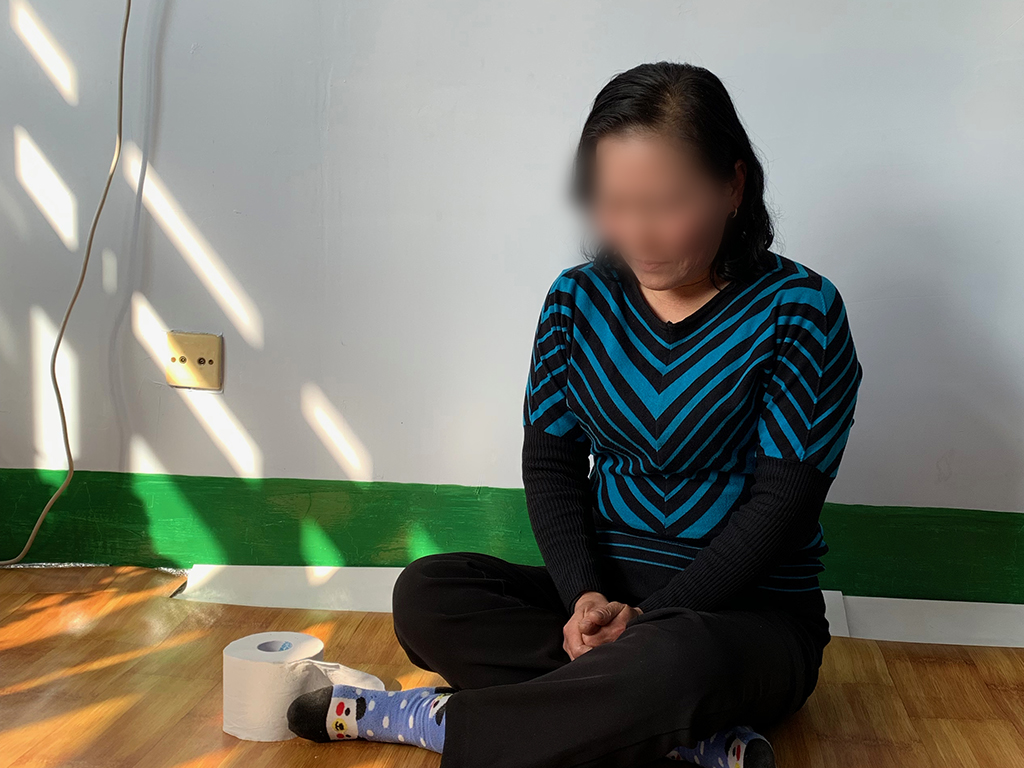When bringing new North Korean refugees into Crossing Borders’ community in China, missionaries conduct introductory surveys. The responses of women who complete these short paper forms are often succinct, lacking description or detail. It is rare to see North Korean women describe themselves in anything more than a few sentences. Their stories, when recorded in such small, syllabic blocks of Korean, narrow their entire lives into short, bullet point facts.
“Priscilla” is a North Korean refugee woman who shared her testimony with Crossing Borders through such surveys. Her story can be summarized quite quickly.
Priscilla has lived in China for almost 15 years. Priscilla arrived in China in 2004, just a few days before her 34th birthday. She escaped North Korea to make money. Priscilla was deceived and trafficked to a Chinese husband who is unable to work. She gave birth to one daughter almost exactly a year after her arrival in China. Priscilla met Crossing Borders’ field pastor and accepted the Christian gospel in 2016. Priscilla attended the first Crossing Borders retreat for North Korean women and their children that same year and has returned to the annual gathering every year since.
Almost every week, Crossing Borders staff reads profiles like Priscilla’s.
Here are just a few short testimonies of refugees’ life-altering escapes from North Korea.
“Woman H" fled to China in 1998 not knowing that she would be trafficked. In 2019, she is 50 years old. She has lived in China for 21 years.
“Woman G" fled to China in 2000 knowing that she would be trafficked. In 2019, she is 35 years old. She has lived in China for 19 years.
“Woman C" fled to China in 2003 because her business had failed in North Korea. In 2019, she is 51 years old. She has lived in China for 16 years.
“Woman D" fled to China in 2004 to earn money and return home. She was deceived and sold. In 2019, she is 43 years old. She has lived in China for 15 years.
“Woman A" fled to China in 2005 to earn money and return home. In 2019, she is 54 years old. She has lived in China for 14 years.
“Woman E" fled to China in 2014 knowing that she would be trafficked. In 2019, she is 29 years old. She has lived in China for 5 years.
There are an estimated 200,000 North Korean refugees in China. Approximately 70 percent of them are women, 80 percent of these women have been trafficked. Even as Crossing Borders has collected over a thousand North Korean testimonies, it is nothing compared to the sheer scale of individual stories of struggle that have yet to be shared.
But even in the course of reading the concise, summarized facts of just a few refugee women’s lives, it is easy to become numbed by their tragedies. It is hard to convey the trauma, or even the perseverance and fortitude, in a person’s life when described in a few sentences. Encapsulated in the short, brief facts are entire lifetimes of fears, triumphs or struggles. Again and again, the staff at Crossing Borders must hold to reminders that these women do not exist on paper. They are people, flesh and blood, who are striving to find hope and peace.
This year, Crossing Borders missionaries spent time asking personal questions to women like Priscilla. Priscilla shared that her favorite food is fish. She loved the food at the 2019 retreat, where seafood was served almost daily. Priscilla’s favorite color is pink. Her favorite animals are puppies. When she reminisces about her hometown, she remembers being a happy, young, unmarried woman. Today, Priscilla is most joyful when she remembers that she is going to heaven.
Priscilla also spends time during retreats sharing about her family. Priscilla’s only daughter, “Julie” is a lot like her mother. Both of them have long, straight black hair that extends to their hips. Both braid their hair into intricate ropes that hang at their back as they sit with their peers at Crossing Borders’ retreats, listening to messages, participating in prayers, receiving counseling. Julie is only 14-years-old, but both mother and daughter have strands of clear, white hair that crisscross with the black - a small sign of the anxiety and difficulty they have endured living in China.
Since accepting the gospel, Priscilla has been praying for her daughter. This year, she asked for prayers that Julie would grow in self-esteem. She, at times, chooses to ask a friend to help speak to teachers on her behalf. Julie, though vibrant, is often shy and can be seen practicing dance by herself in a corner. Both she and her mother are excellent dancers, but while Priscilla is bold and confident in her talents, Julie is reserved and quiet. Julie, however, has learned much about the gospel and the Bible from her mom. Crossing Borders hopes that both of them will continue to grow together.
Crossing Borders is thankful for each and every life that has been touched by the ministry in China. Again and again, we find that their stories bear overwhelming burdens. We also find, however, that they are again and again greatly relieved, amazed and astounded by the hope of the gospel.





















